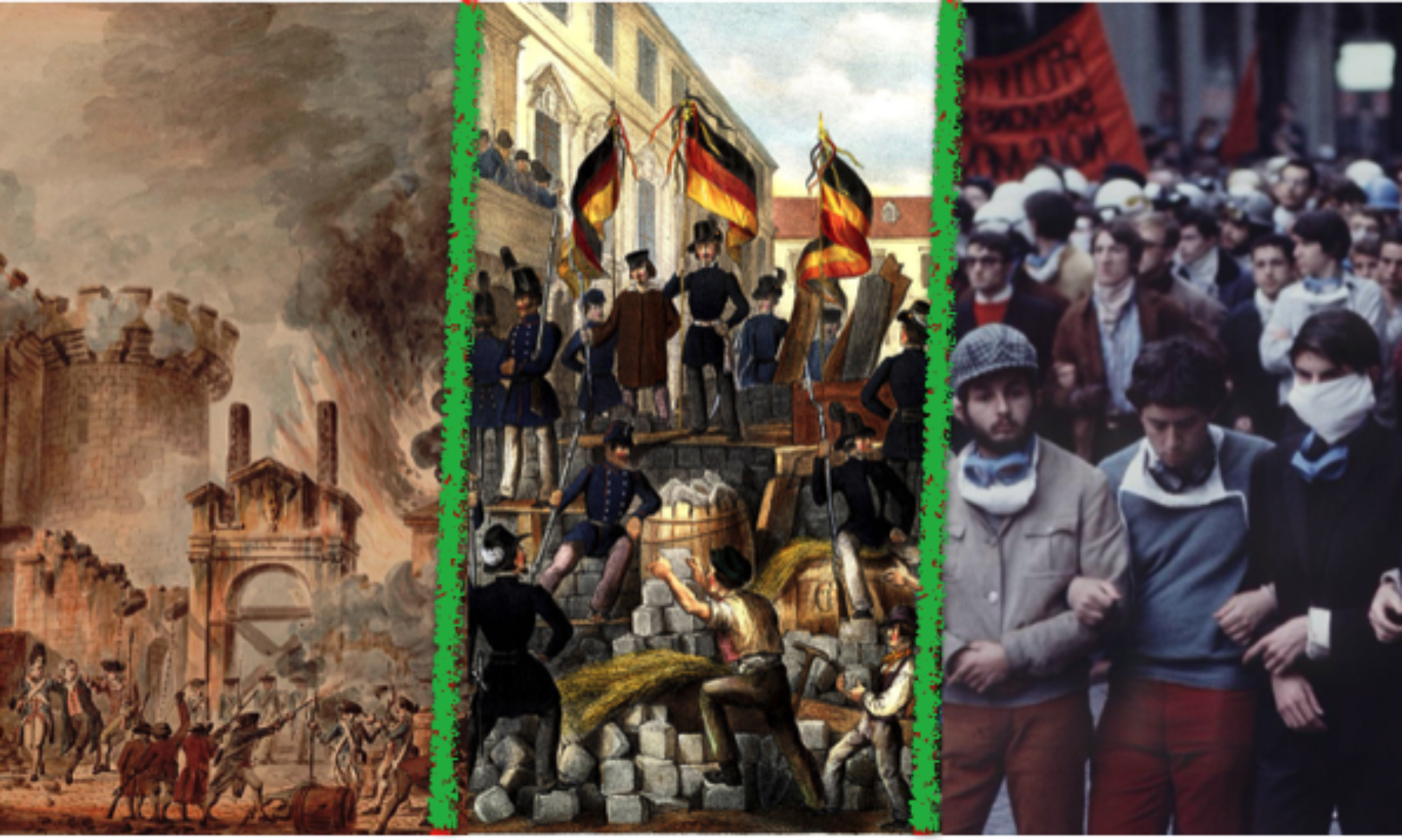Chapter 4 of Popkin concludes with an open ended inquiry of what exactly killed the chances of a Constitutional Monarchy for France. There was some talk of failure being “inevitable.” As historians, we should never be content with that answer. Personally, I draw the conclusion that the Constitutional Monarchy of France failed because the initially set post-revolution government was not as democratic or “revolutionary” as it claimed. The deputies had merely set up an oligarchy, still founded in giving power to wealthy, white men. However, the monarchy was the figurehead of their indiscretions. They drafted “The Declaration of the Rights of Man and Citizen,” but it was clear they did not truly believe equality and will of the people was as sacred as they fronted.I think a clear example of this can be found on page 54 that outlines the events of October 6th, 1789. While deputies were discussing what degree of power the monarchy would still possess, women from Paris took matters into their own hands to move the King and kill his guards. Had the deputies set up the government to truly be equal in practice and give more individuals a say in the new government, the French people would not have gotten so frustrated at the idea of the figurehead that was the monarchy. I am curious as to what others think on this subject.
Jonathan Haines
Why is it that there has been many lists of grievances and pamphlets written towards the higher power in Europe whether it be from the 3rd estate women or people of color? There seems to be a pattern with citizens in the minority following suit and complaining about the injustices they face while the white male upper class has seemed to have done nothing about it. Each document of complaint has different substance whether it be the tone or demands but each has one thing in common, the want for a sort of equality. What is inspiring the want for progressive change in Europe?
Sam Stewart
I think this an interesting point you bring up, about how these progressive moments all occurred at a similar time. In my opinion the people within these groups pushing for progressive change saw an opportunity amidst the chaos of the revolution. In violent revolutions such as the french revolution where the playing field for power becomes completely reset there is opportunity for oppressed groups to improve there status in the power hierarchy. The grievances that members of the Third Estate within France levied against the king in pamphlets such as Sieyès’s What Is the Third Estate? were not brand new. Similar to those Male’s in the third estate, other groups had been harboring grievances for some time. Take the slaves who rebelled in the Caribbean for example, they had harbored hopes of rebellion since Francois Makandal tried to rebel in `1757. Since the rules are being redrawn , revolution is a great opportunity for groups feeling they have not had say in society to voice there opinions on what the post revolution society should look like.
Alex Garvey
I agree with Sam that these movements all occurred at the same time because of the chaos of the revolution. What better way to get a point across than during a problematic time filled with turmoil. The tone and demands may differ a little bit but ultimately the point of each of these pamphlets was some sort of equality. I also feel like these movements came at time same time because of inspiration from the other groups. The first group pushing for change probably inspired the other groups to jump in and list their complaints and demands as well. One group set the tone and the others followed.
Zoom link for remote classes!
Here is the Zoom link you should use when we are meeting remotely. It is a “recurring meeting” link, so it will always be the same. Just click it when it’s time for class to start, and you will be magically transported to the wonderful world of HIS 270-02:
https://washjeff-edu.zoom.us/j/98766842846?pwd=ZFZJcnMyS3RqR2V3aDkzTnYrMkVuUT09
*We will be remote for all classes in Week 1-2 and all Thursdays this semester. So far, we are planning to meet in hybrid mode (with some of you face to face with me in the classroom) on Tuesdays starting in Week 3. This is subject to change, as are so many things this semester. I will let you know about any changes as soon as I possibly can.
EDIT: As of Week 5, we will be remote for the rest of the semester.
Welcome, Barricaders!
Welcome to HIS 270-02: Revolution! Europe at the Barricades. I’m glad to be taking this journey with you this semester. This WordPress site will be our home base for all of the remote parts of this class. Here, you can find the Syllabus, all assigned Reading & Viewing materials, the Discussion Leadership schedule, assignments, and writing resources. Most importantly, this is the home of our blog, through which we will work together to shape our intellectual journey. Please see the syllabus for details, and feel free to ask me if you have any questions. You can always reach me by email at lgoldman@washjeff.edu. Let’s start tearing up the paving stones!

